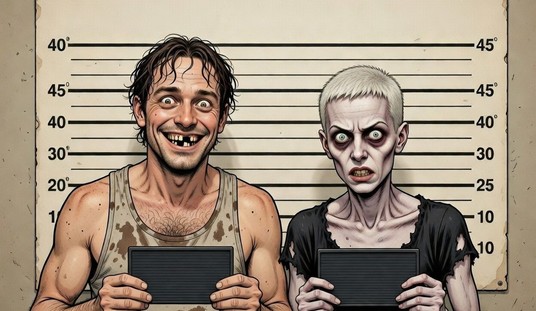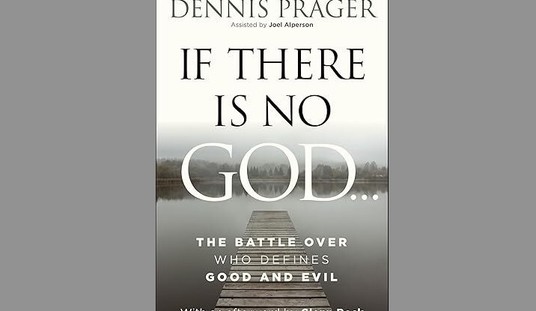http://www.youtube.com/watch?v=jpoYfrnxOYI
Today Universal released Savages, a new Oliver Stone movie in his Natural Born Killers ouevre of nihilistic, Clockwork Orange-wannabes. At least these over-glorified action movies disturb less than Stone’s other cinematic preoccupations — the communist agitprop documentary, conspiracy theory histories, and anti-capitalist polemics.
The premise from the press release:
Laguna Beach entrepreneurs Ben (Johnson), a peaceful and charitable Buddhist, and his closest friend Chon (Kitsch), a former Navy SEAL and ex-mercenary, run a lucrative, homegrown industry-raising some of the best marijuana ever developed. They also share a one-of-a-kind love with the extraordinary beauty Ophelia (Lively). Life is idyllic in their Southern California town…until the Mexican Baja Cartel decides to move in and demands that the trio partners with them. When the merciless head of the BC, Elena (Hayek), and her brutal enforcer, Lado (Del Toro), underestimate the unbreakable bond among these three friends, Ben and Chon-with the reluctant, slippery assistance of a dirty DEA agent (Travolta)-wage a seemingly unwinnable war against the cartel.
So far Savages has collected mediocre reviews. Rotten Tomatoes proclaims only 51% positive, and highlighs Rafer Guzman at Newsday addressing the main problem with Stone’s explorations in the genre of the highbrow, ultraviolent, philosophy major action movie:
“Savages” is a juvenile fantasy of bullets, breasts and bongs — not such a bad thing, if Stone would just admit it and stop staging the film as a profound ethical wrestling match.
A film can be a teenage boy’s exploitation picture with naked women, fun explosions, and elegant action sequences. Or it can be a grown-up movie that deals with evil and humanity’s animal instincts seriously. It can’t be both. The reason why Stanley Kubrick’s film worked so well and has so rarely been duplicated is that it knows to start off as one to hook the adolescents and then shift to the other to make an adult point about reality. But Stone hasn’t made that leap upwards to maturity himself, so how could his films?
PJ Media’s CEO Roger L. Simon wrote about Stone in his memoir Turning Right at Hollywood and Vine and offers an anecdote that puts the celebrated director’s work in a different light:
For me, Stone has always been the classic “Hollywood radical” — his espoused progressive political ideals in near complete opposition to his private behavior. His arrests for drug possession and driving under the influence are well documented, but they are the least of it. They are personal excesses engaged in by many, although perhaps not always to Oliver’s extent. Nor is his drug use in the slightest hypocritical. He was, as many of us were, an avowed experimenter. You can judge that as you will. I take a rather libertarian view of drugs, especially where adults are concerned, and am not convinced that the “war on drugs” is of any use. What I am referring to here is not a psychedelic lifestyle or, for that matter, testing the limits of outré sex with consenting adults. I am talking about how he treated those closest to him — friends, family, and colleagues. Some part of me resisted telling the story that follows, but the play-acting of Hollywood liberalism reveals itself most clearly in this extraordinary divide between the public persona and the private person.
The phone rang one night around ten while Renee and I were lying in bed reading and watching TV. It was Oliver’s wife Elizabeth—a nice, rather naïve Tippy Hedren lookalike—calling from their house. Renee was apparently one of her few friends and she would call once in a while to seek counsel on how to deal with the unpredictable Oliver. Tonight was more than the usual, though. With my ear half-cocked to the one side of the conversation I could hear, I gathered that Elizabeth was hysterical. In fact, I could hear her sobbing. She had discovered Oliver’s diary.
This must have been 1986, because Oliver was in the midst of making Wall Street, released the following year. Renee signaled to me that what she was hearing was incredible. When she hung up, she filled me in. Elizabeth had read her portions of the diary. Oliver repeatedly described leaving the Wall Street set at lunch break for a Chinatown whorehouse where he had unprotected sex with several prostitutes. This was at the height of the AIDS epidemic. He was clearly putting his own wife at tremendous risk. He also had a two-year old son with Elizabeth. No wonder she was beside herself. It was hard for me to have much respect for the man again. That disconnect between the execrable private person and the self-important director who sought to define political morality for us with film portraits of Kennedy, Nixon, Castro, and, more recently, Mahmoud Ahmadinejad and George W. Bush, is unbridgeable for me. I could only laugh when I read that his key to the understanding of Bush was reformed alcoholism.
Stone’s fascination with leaders, totalitarian and otherwise, is no doubt an outgrowth of his own narcissistic personality, but that makes him far from unique in Hollywood.
Stone’s ugliness aside, the film does have Salma Hayek as an ultracool Mexican mob boss. Doesn’t that fact alone make it required viewing when it’s on Netflix in 6 months or HBO in a year? The advantage of skipping paying $12 for a theatre ticket: at home I can just fast-forward though Stone’s cruelest sequences.











Join the conversation as a VIP Member